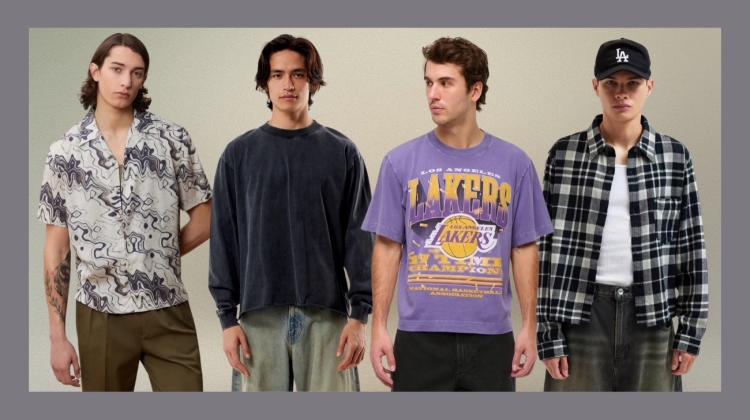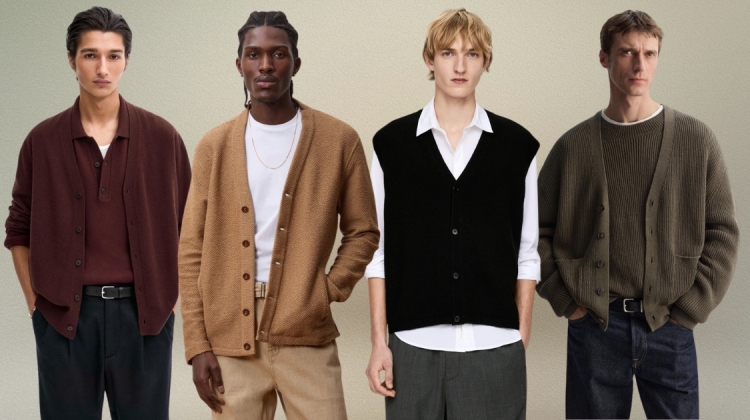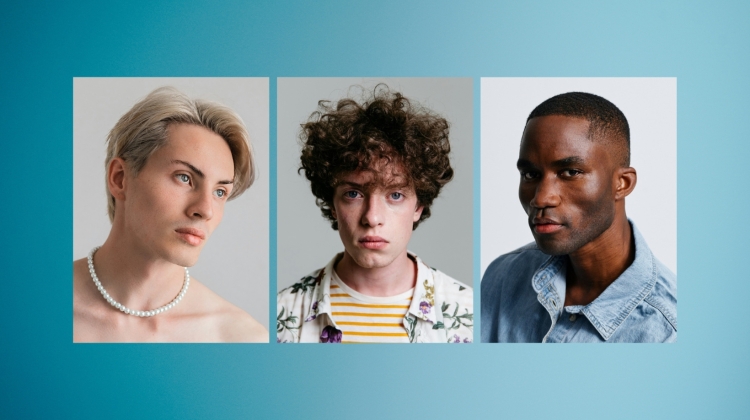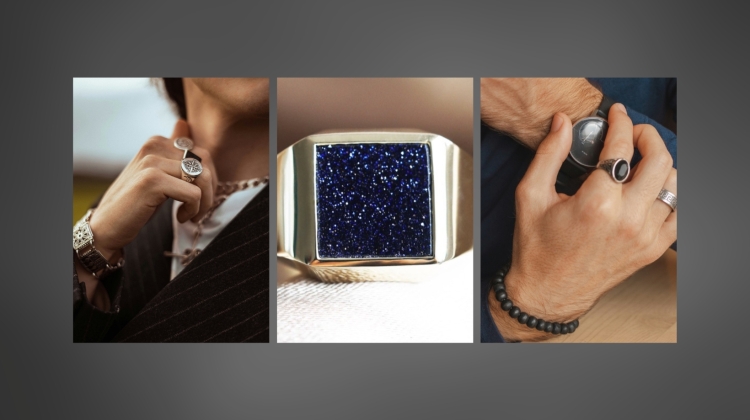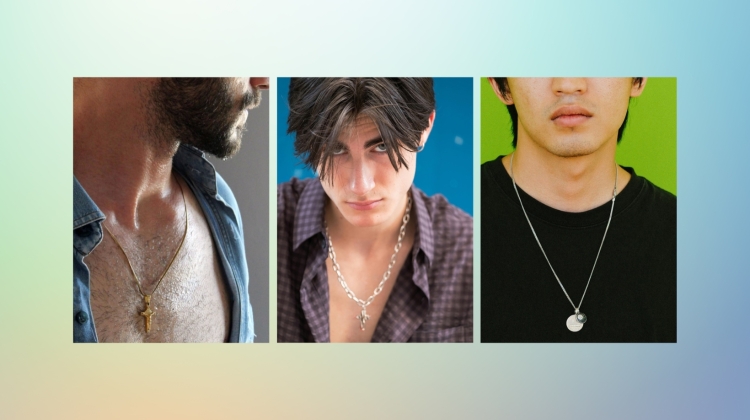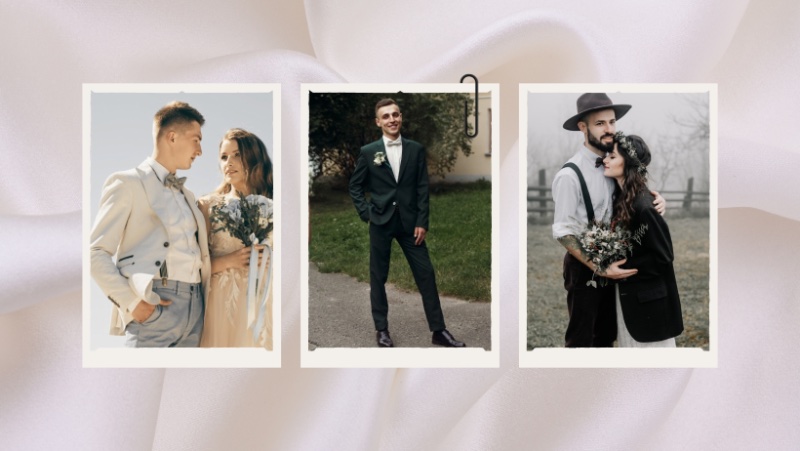
Selecting the perfect groom outfit for a wedding is a key element of the marital planning process, often overshadowed by the bride’s attire yet equally significant in defining the day’s aesthetic. This choice is about creating a balanced blend of tradition, personal style, and the overarching theme of your special day.
It’s an art form where every detail, from the cut of the suit to the choice of accessories, contributes to a portrait of elegance and personal expression.
Groom Outfits
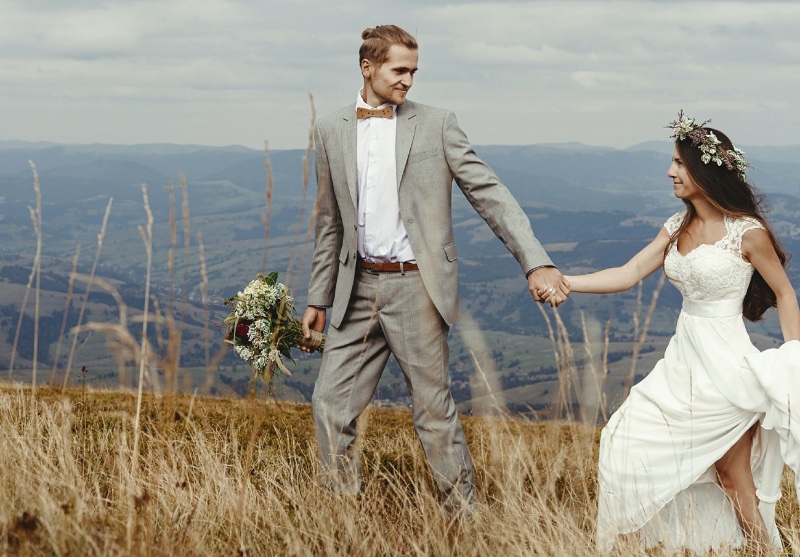
Navigating the vast ocean of options in groom fashion, from the classic black tie to the increasingly popular beach wedding attire, requires a keen eye for style and an understanding of how different elements come together to craft a timeless look reflective of contemporary trends.
Wedding Dress Codes
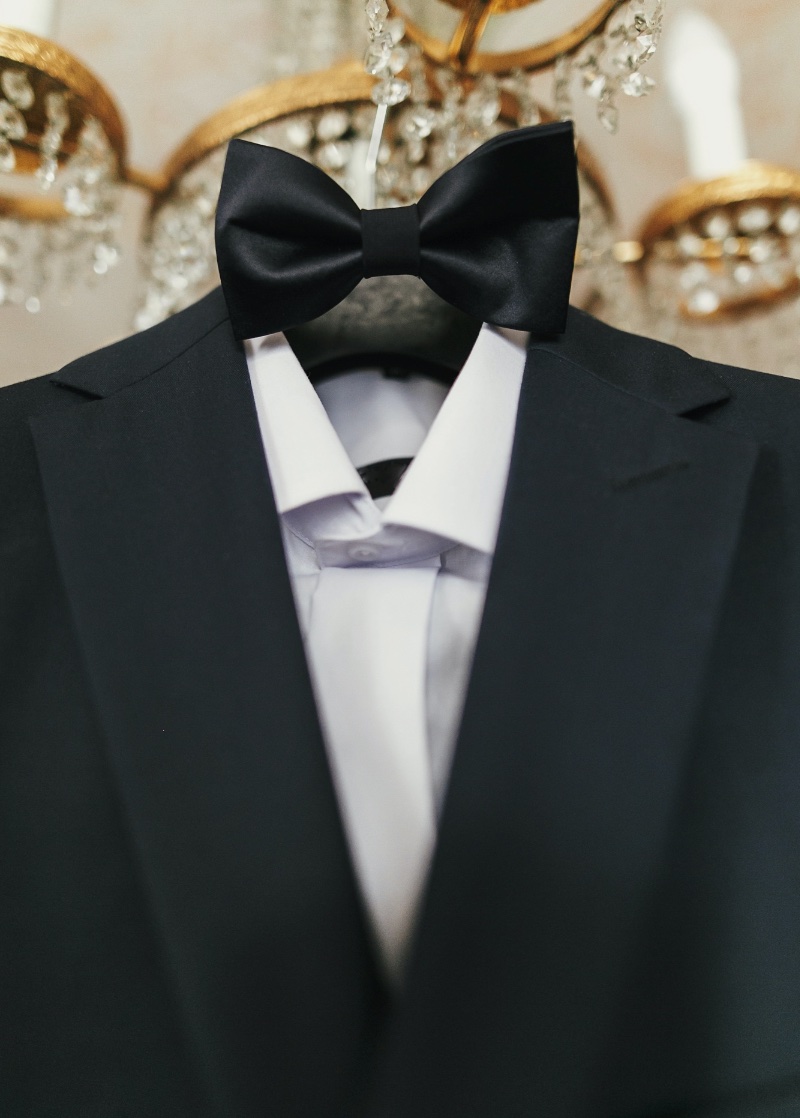
Just as carefully chosen save the date templates set the tone for your upcoming ceremony, understanding wedding attire is crucial. Wedding attire is replete with terms and conventions that can seem cryptic at first glance.
A groom’s journey to the perfect outfit begins with understanding the language of dress codes. These codes are a roadmap to ensuring that your attire aligns with the tone and style of your wedding.
Black Tie
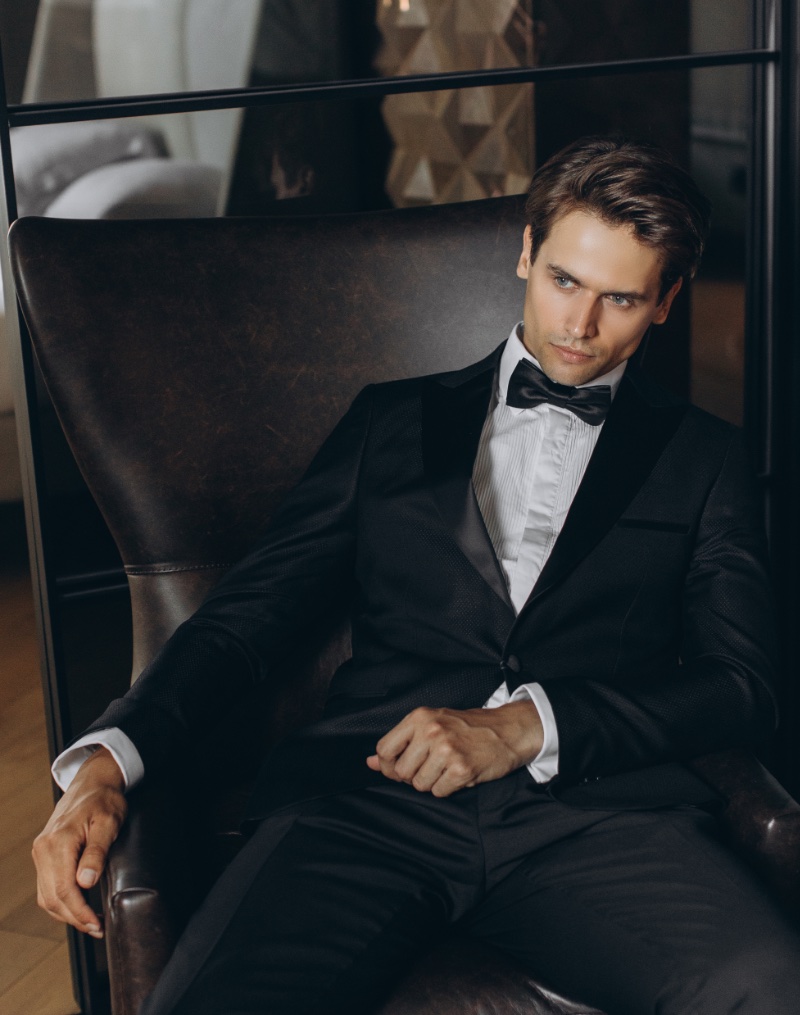
Synonymous with evening sophistication, a black tie dress code calls for a classic tuxedo. The quintessential black tie outfit features a black jacket with silk lapels, trousers with a silk stripe, a white dress shirt, and a black bow tie.
It embodies timeless elegance, perfect for evening affairs that call for a touch of formality and grandeur.
White Tie
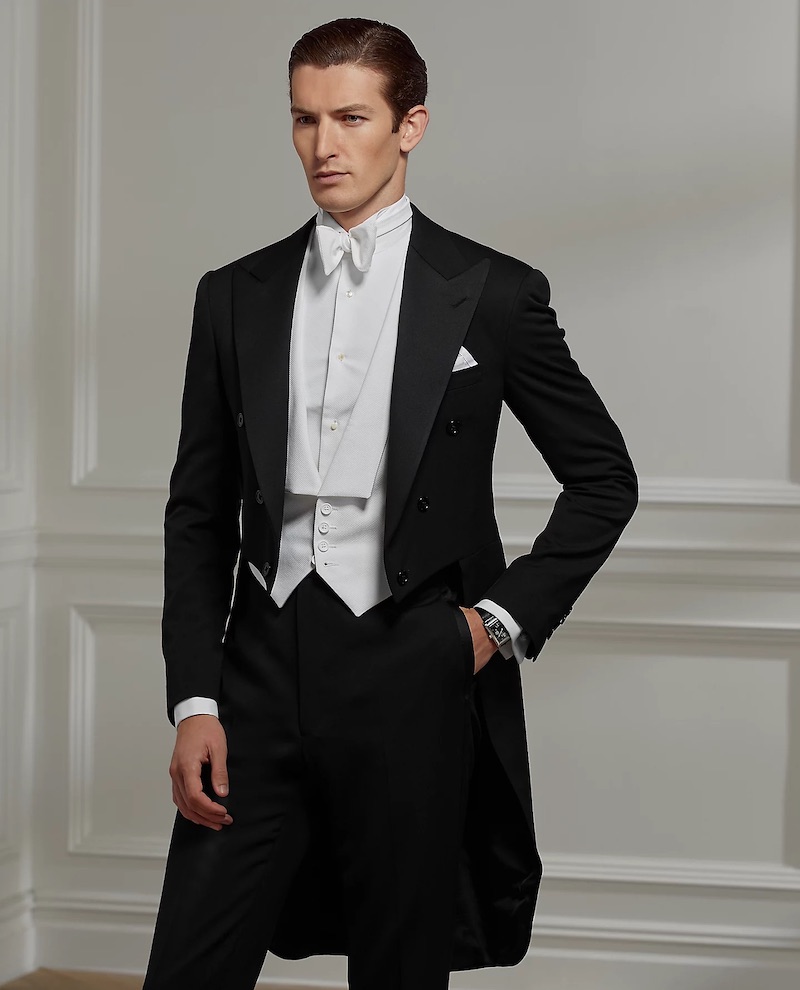
The epitome of formal wear, white tie is often reserved for ultra-formal events. It includes a tailcoat, a white waistcoat, a white bow tie, and a wing-collar shirt. This is the pinnacle of groom attire, exuding a regal and sophisticated air.
Casual
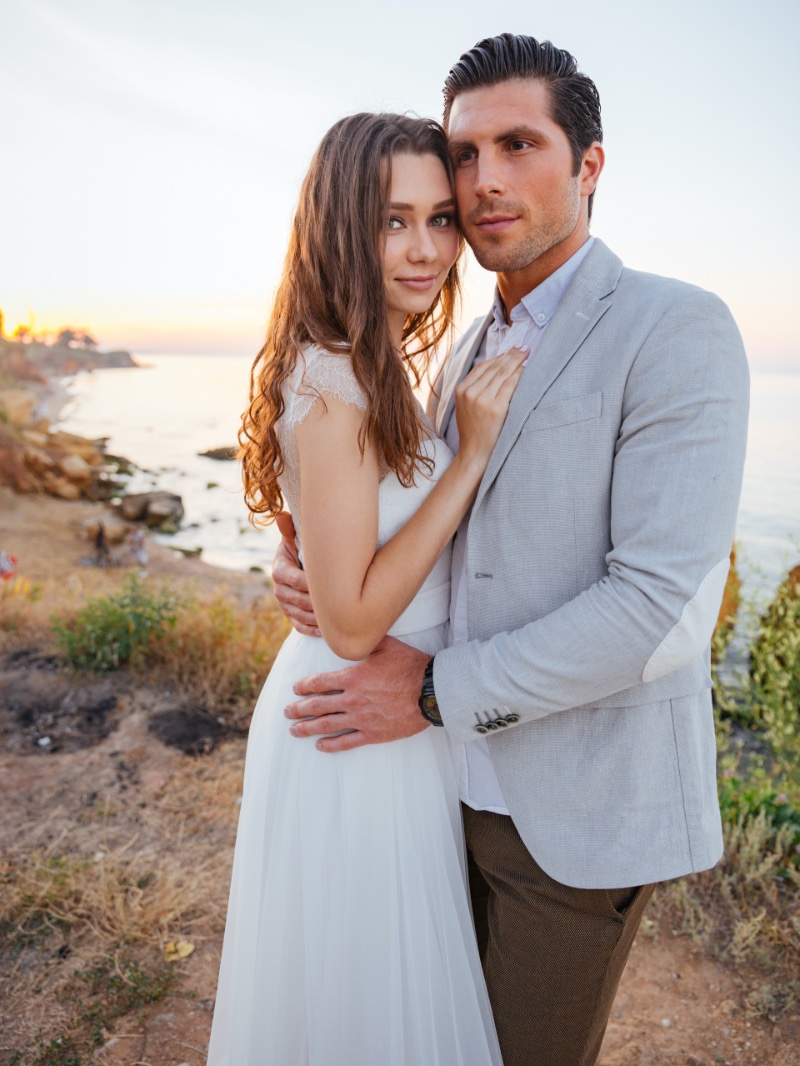
More flexible, this dress code ranges from well-tailored suits to smart trousers with blazers, suitable for relaxed settings like garden or beach weddings.
Suits & Tuxedos: The Cornerstones of Groom Fashion
With groom attire, suits and tuxedos stand as the twin pillars of elegance, each catering to different levels of formality and style. Understanding their distinct characteristics is crucial in making an informed choice for your wedding day.
Suits: The Versatile Choice
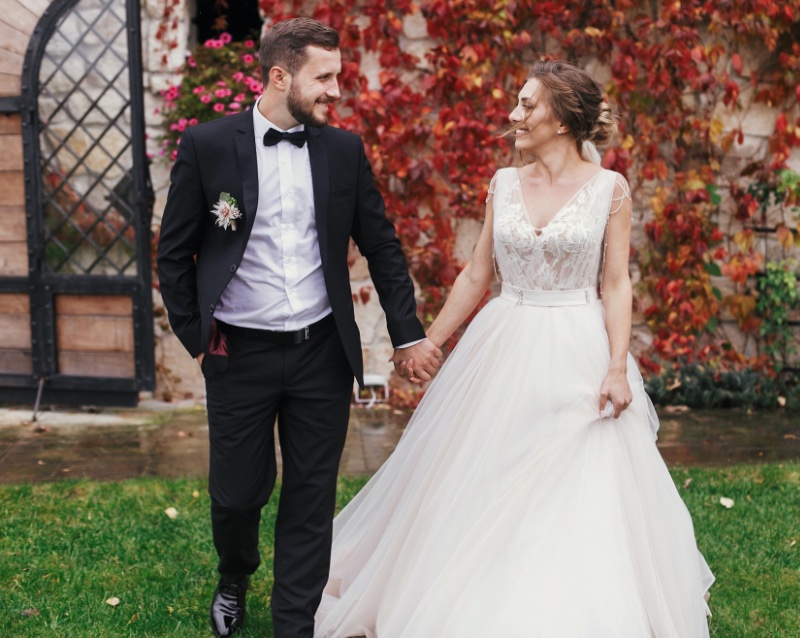
A suit typically comprises a jacket and trousers made from the same fabric. It’s versatile and suitable for various weddings, from casual to semi-formal.
Fabric and Color: Options range from classic wool fall wedding suits to lighter fabrics like linen for summer weddings. Colors vary widely, from traditional navy and charcoal to more adventurous hues like midnight blue or subtle patterns.
Personalization: Suits offer more room for personal expression. You can pair them with different styles of shirts and ties and even opt for unique linings to add a personal touch.
Tuxedos: The Epitome of Formality
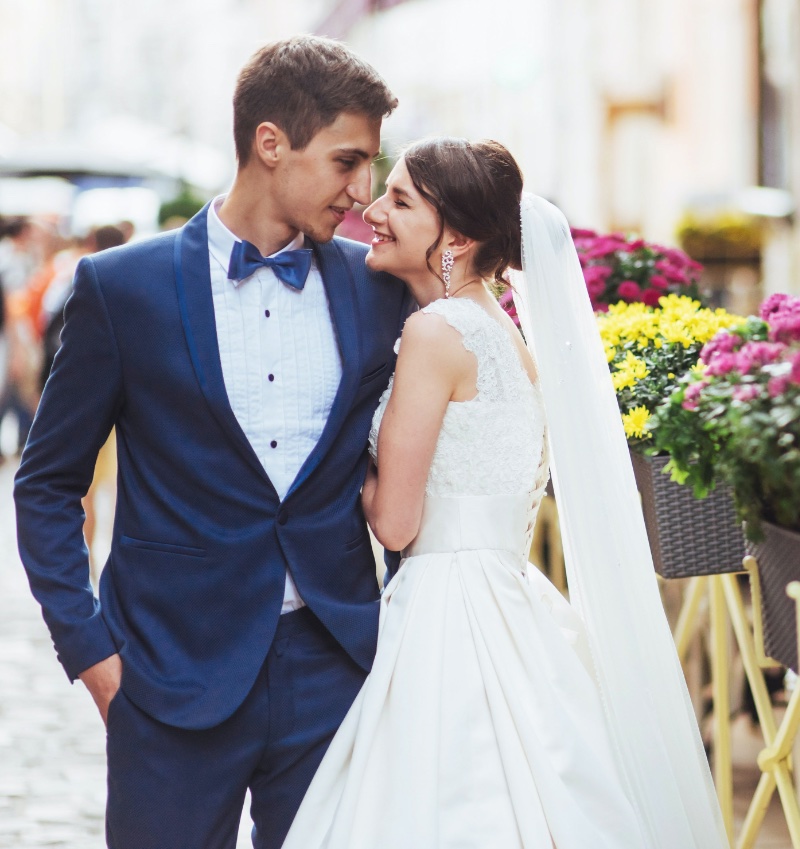
A tuxedo elevates the formality with its satin details on lapels, buttons, and side stripes on trousers.
Color and Style: While black is traditional, modern tuxedos also come in shades like burgundy or midnight blue for those looking to make a bolder statement.
Accessorizing a Tuxedo: Traditionally paired with a white dress shirt and a bow tie, cufflinks, and a cummerbund or waistcoat, a tuxedo is about classic sophistication.
Tailoring & Personalization
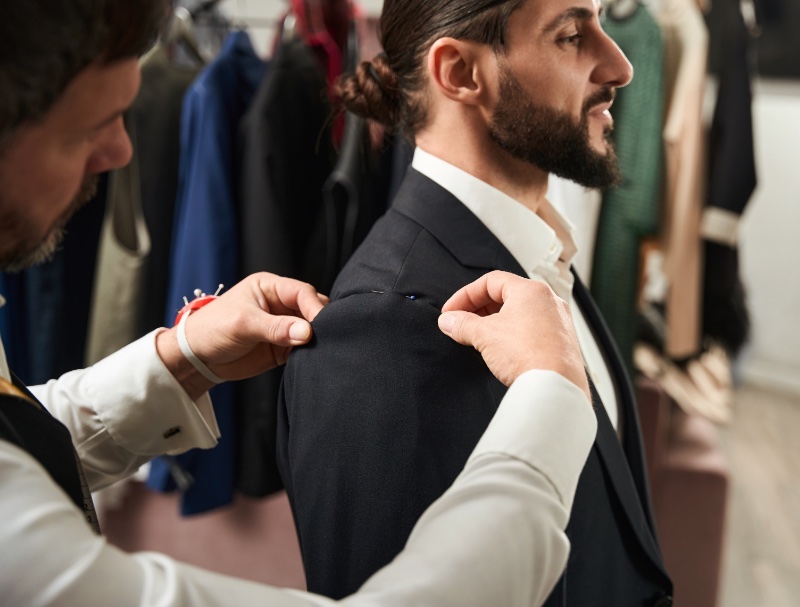
A well-tailored outfit is key to looking your best. Whether you choose a suit or tuxedo, the fit should be impeccable. This is where a skilled tailor ensures your outfit is adjusted to your body’s contours, enhancing comfort and appearance.
Personalization can be reflected in the choice of fabric, the cut of the suit, or even the style of the lapels and buttons.
Fabric Choices & Seasonal Considerations
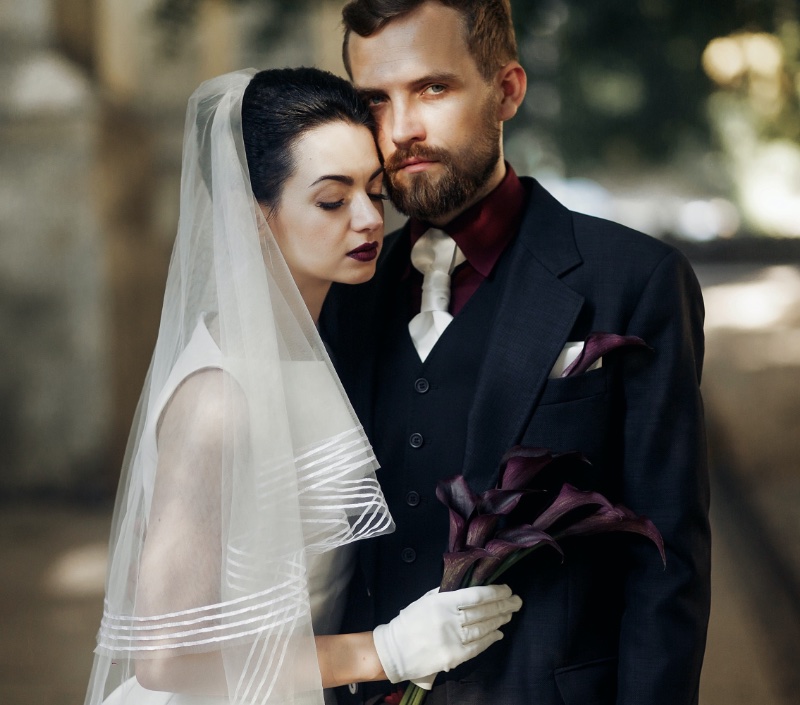
The choice of fabric plays a significant role in both appearance and comfort. Heavier fabrics like wool and velvet are ideal for cooler climates or winter weddings, while linen and cotton are perfect for warmer weather or beach settings.
Colors & Patterns for Every Groom
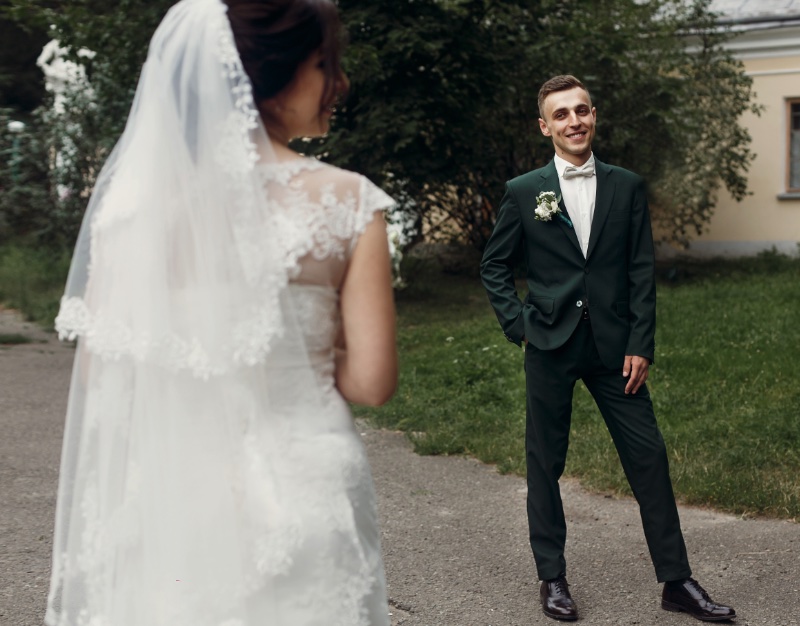
Gone are the days when grooms were limited to black and grey. Today’s groom has a palette of colors, allowing for expression while respecting the occasion’s formality. Deep greens, blues, and subtle patterns can add a modern twist to traditional attire.
Alternative Groom Attire
Not every wedding calls for the traditional suit or tuxedo. Today’s grooms have the freedom to explore attire that reflects their personality and the unique theme of their wedding.
Casual & Themed Wedding Outfits
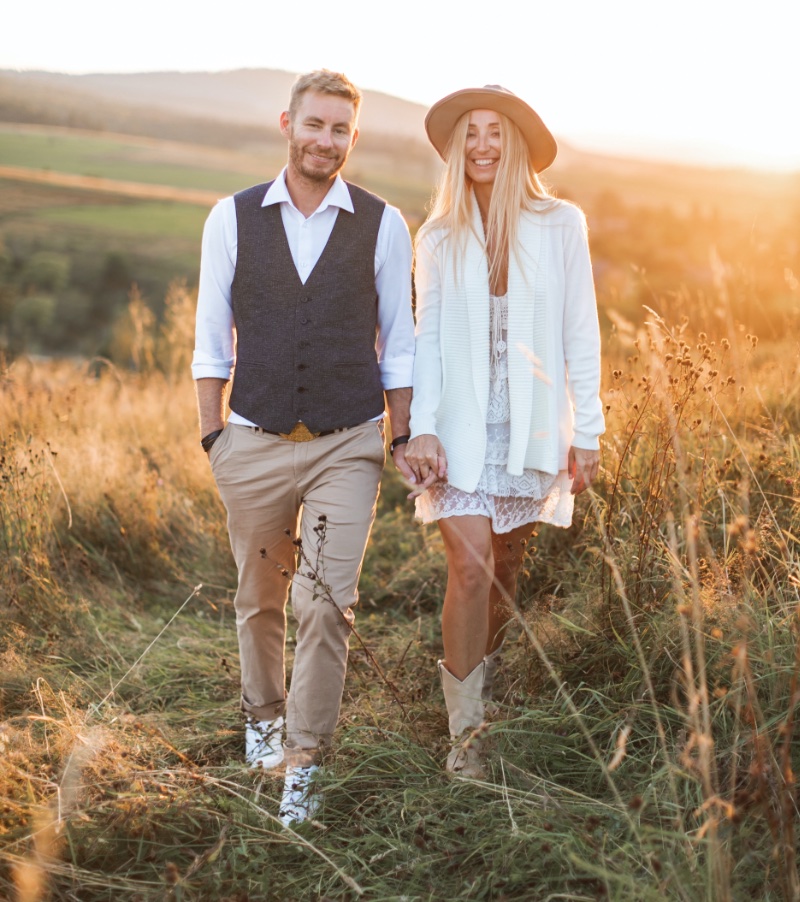
Attire can range from khakis with blazers to linen pieces in casual settings. From rustic to vintage, themed weddings open a world of possibilities.
Grooms can opt for period-specific attire, like a morning dress for a traditional ceremony or a kilt for a Scottish-themed wedding. The key is to embrace the theme while ensuring the outfit remains wedding-appropriate.
Beach Wedding Attire for Men
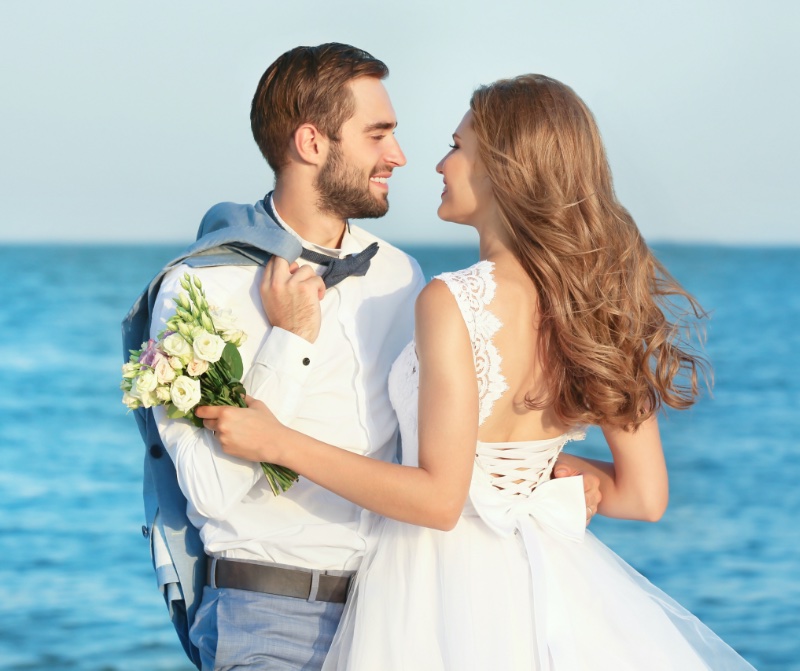
Beach weddings call for a specific approach to groom attire, balancing elegance with the casual, laid-back vibe of the seaside setting.
Fabric and Style: Lightweight fabrics like linen and cotton are ideal. Choose lighter colors, such as beige, light grey, or pale blue, to reflect the sunny environment.
Footwear: Traditional dress shoes might not be the best choice for sand. Consider loafers or even stylish sandals for a more relaxed look.
Accessories: Keep accessories minimal. A lightweight scarf or a casual hat can add style without overpowering the relaxed vibe.
Seasonal Attire: Summer Lightness vs. Winter Warmth
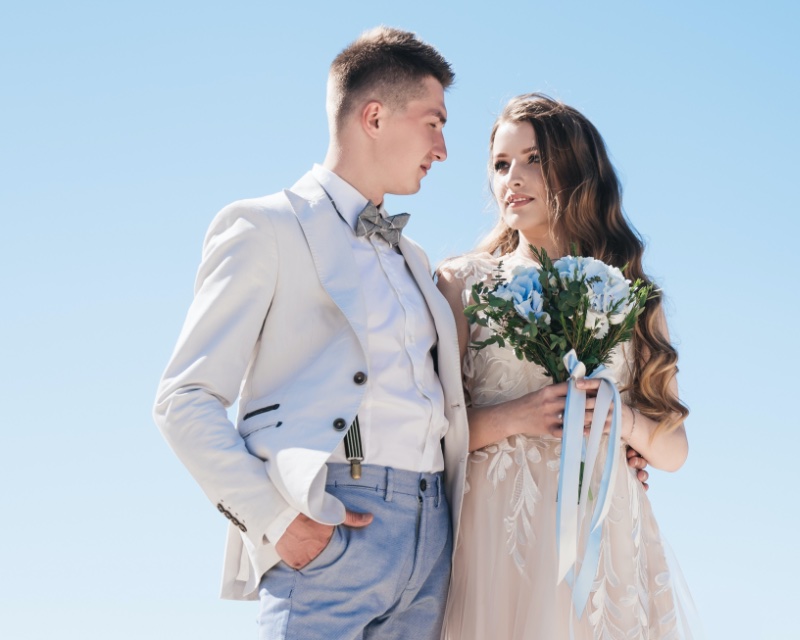
The season of your wedding can significantly influence your choice of attire.
Summer Weddings: Opt for lighter fabrics and colors. Summer wedding style is an opportunity to experiment with brighter shades and lighter materials like seersucker or lightweight wool.
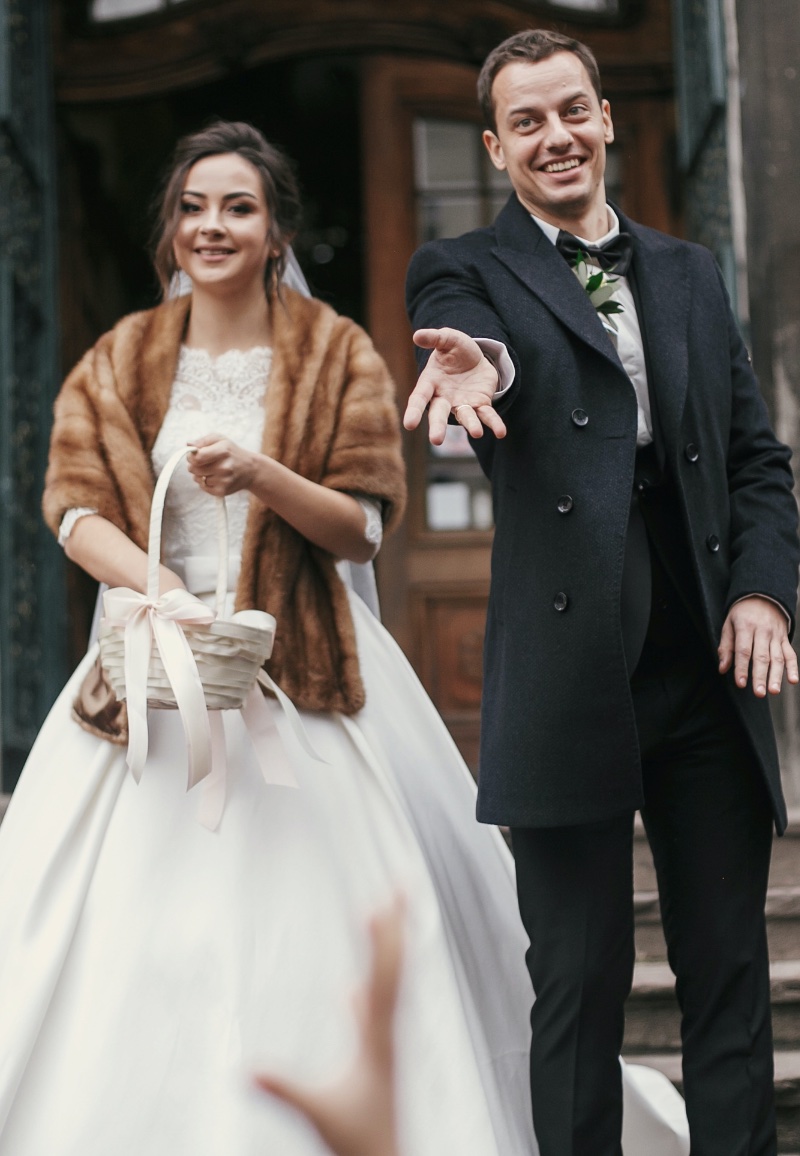
Winter Weddings: Choose heavier fabrics like tweed or velvet. Darker colors like charcoal or navy create a sense of warmth and elegance appropriate for the season.
Accessorizing the Groom
Accessories are the elements that transform a groom’s outfit from standard to standout. They are the subtle details that express personality and style.
Essential Accessories
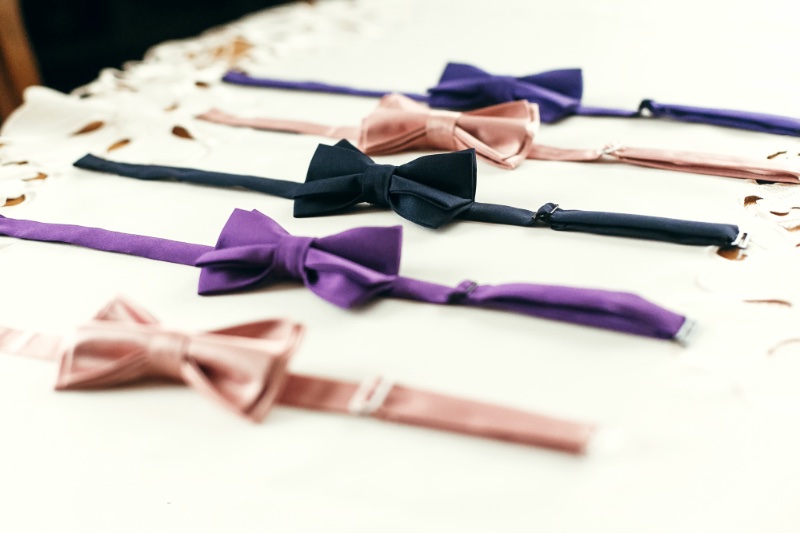
Ties and Bow Ties: Choosing between a tie and a bow tie can significantly alter the look of your outfit. Bow ties are synonymous with tuxedos and formal events, while neckties lend themselves to a broader range of styles, from formal to casual.
Cufflinks: These small yet impactful accessories add a touch of elegance and personal style. They can range from classic silver or gold to custom designs that reflect personal interests or the wedding theme.
Pocket Squares: A well-chosen pocket square adds color and sophistication. The key is to complement your tie or bow tie, not directly match, creating a cohesive but not overly matched look.
Unique Fashion Accessories
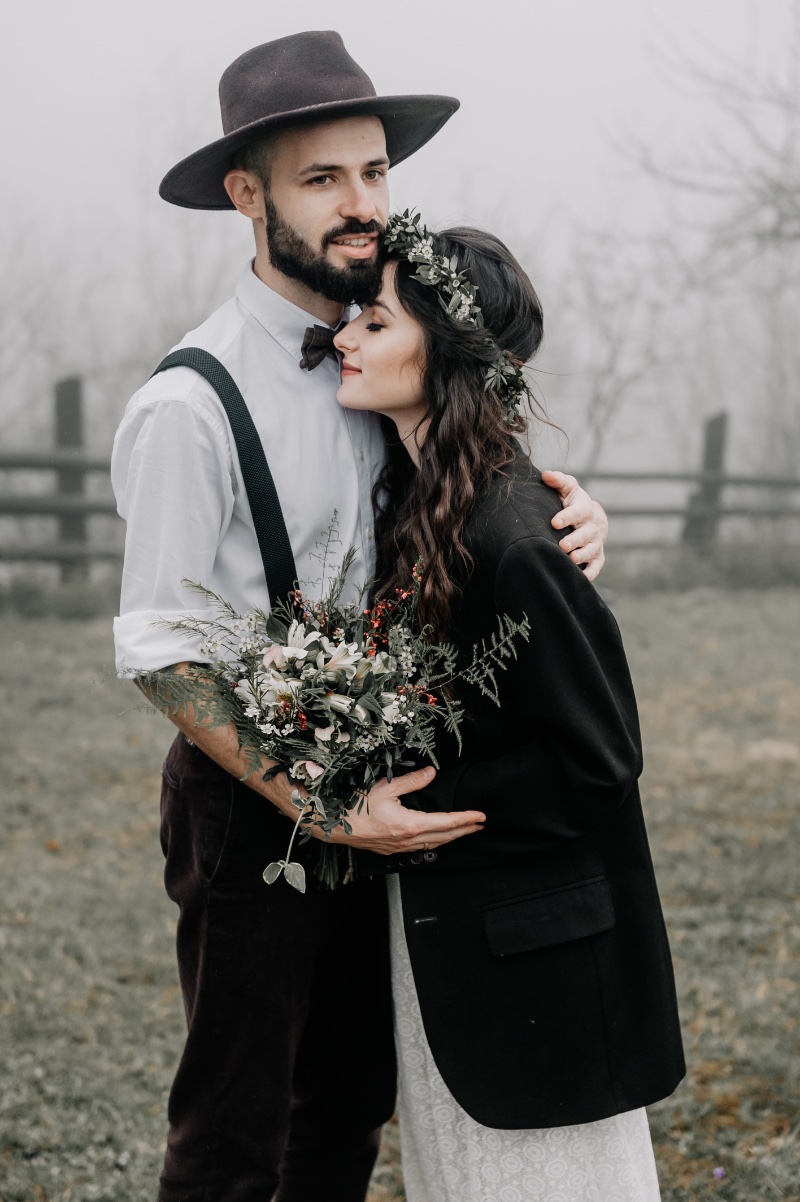
For the groom looking to add a distinctive touch to his wedding day attire, there are a variety of unique accessories to consider.
Fedora: Ideal for outdoor or vintage-themed weddings, a fedora can add a touch of retro style and personality.
Gloves: For a formal wedding, particularly in cooler climates, gloves can add an element of classic elegance.
Pocket Watch: A pocket watch is a nod to tradition and a stylish accessory that can be a conversation starter.
Accessories to Complement the Wedding Theme
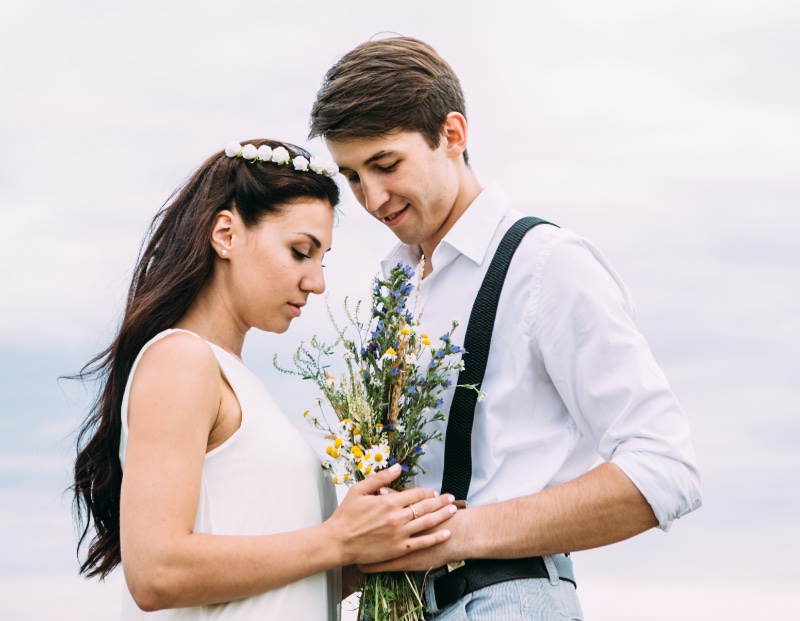
When selecting groom accessories, consider the overall theme of your wedding and your style. For a beach wedding, lighter, more casual accessories might be appropriate. In contrast, a formal evening affair might call for more classic and elegant pieces.
The key is to balance complementing the wedding theme and expressing individuality. Accessories should be chosen carefully, as they are the finishing touches that elevate your outfit.
Whether it’s the classic elegance of cufflinks and a pocket square or the unique addition of a fedora or pocket watch, the right accessories will complete your look and reflect your style on your wedding day.
Grooming & Finishing Touches
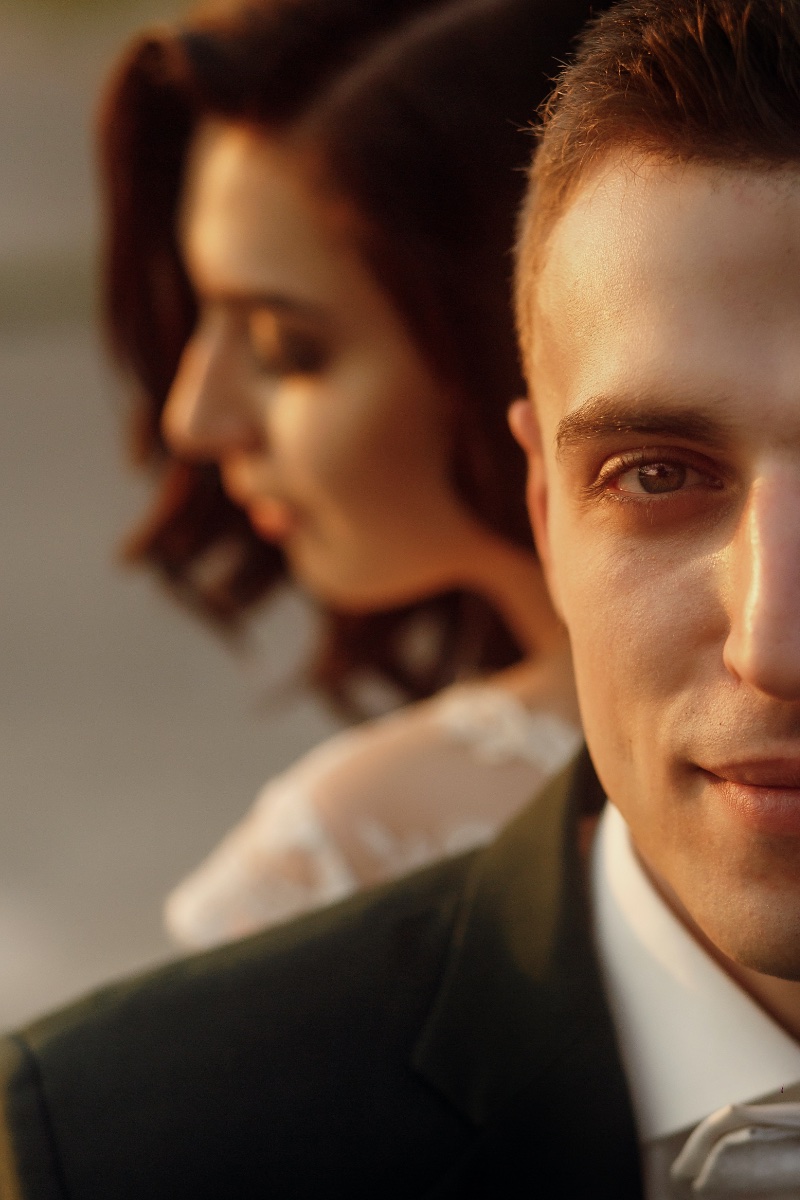
The significance of personal grooming in completing the groom’s wedding day look cannot be overstated. Meticulous grooming enhances your physical appearance and boosts confidence, ensuring you look and feel your best.
Personal Grooming
Hair and Facial Hair: A fresh haircut and well-groomed facial hair are essential. Consider a professional barber visit a day or two before the wedding for a polished look.
Skin Care: Healthy, well-cared-for skin can make a significant difference. A basic skincare routine leading up to the wedding, including cleansing and moisturizing, can ensure a fresh, vibrant complexion.
Fragrance: Choose a cologne that complements your style without being overpowering. The scent should be subtle yet memorable, adding an invisible but impactful layer to your grooming.
Shoes & Belts: Color Coordination
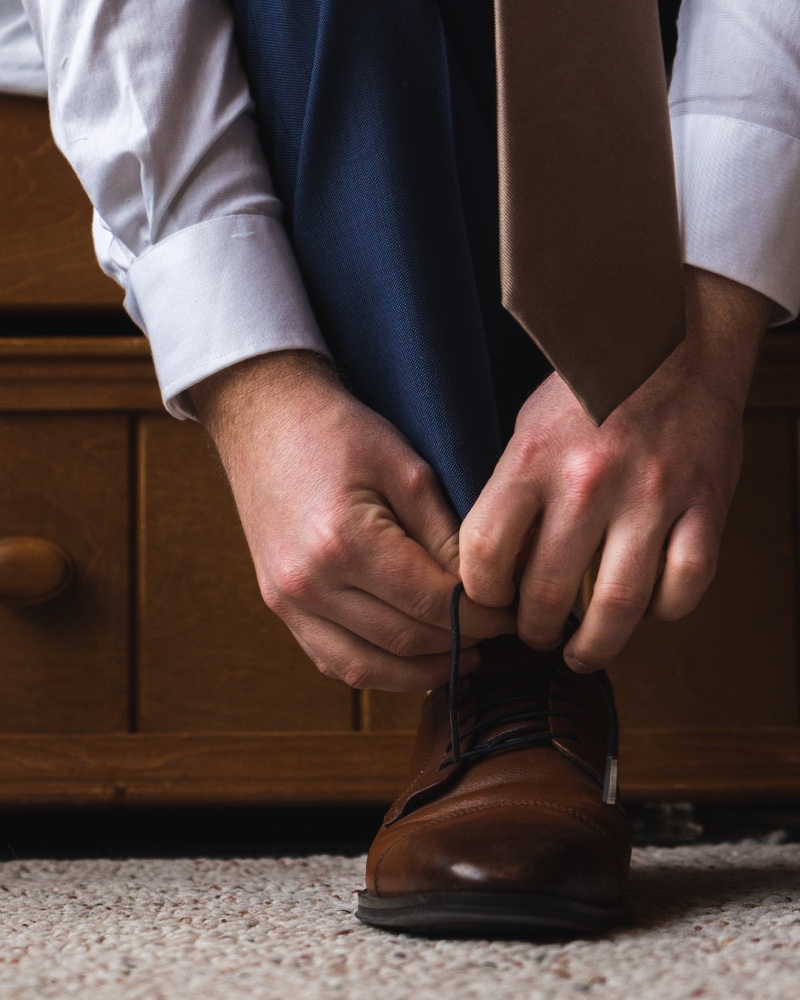
The right shoes and belt are crucial components of the groom’s attire, playing a significant role in the outfit’s cohesion.
Shoes: They should be of high quality and well-polished. The style and color should match the event’s formality and coordinate with your suit or tuxedo.
Belts: A belt should complement your shoes and suit the outfit’s formality. In formal settings, a belt may be replaced by suspenders for a more refined look.
Final Touches
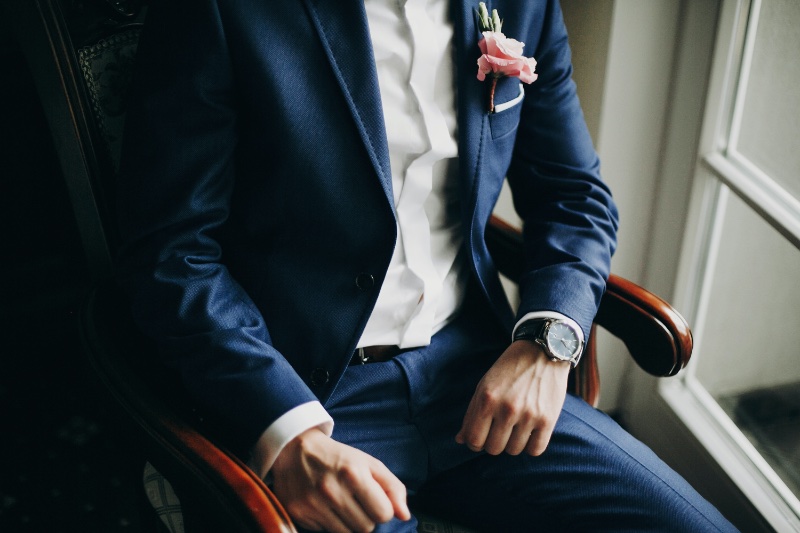
These final touches are symbolic and aesthetic elements that tie the groom’s look to the wedding’s theme and color scheme.
Buttonholes and Boutonnieres: Often mirroring the wedding’s floral arrangements, these add a touch of color and elegance. They should be placed on the left lapel, over the heart.
Handkerchiefs: A well-chosen handkerchief can add color and sophistication to your outfit. It should complement, not match, your tie or bow tie.
Coordinating with the Wedding Party
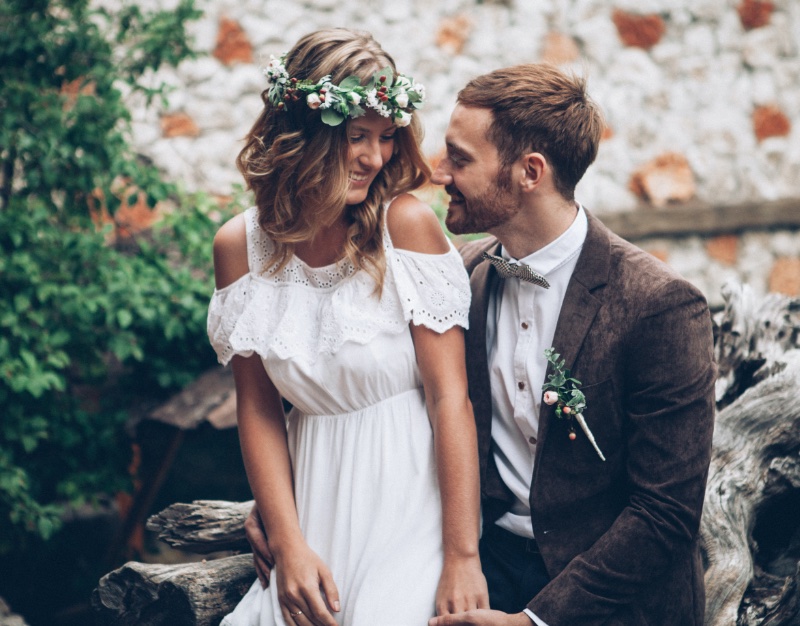
A cohesive visual experience is key in any wedding, and the groom’s attire plays a pivotal role in this ensemble. Achieving harmony in the wedding party’s attire requires thoughtful coordination and attention to detail.
Coordinating Groom’s Attire
Complementing the Wedding Dress: The groom’s outfit should complement the bride’s gown in style and formality. If the wedding dress is an elaborate, luxe design, the groom’s attire should match this level of formality. The groom might opt for a more understated look for a simpler dress.
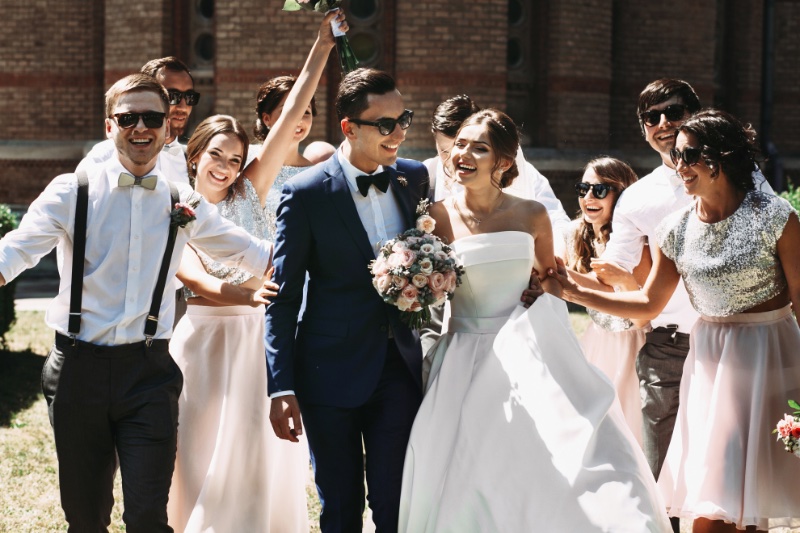
Bridesmaids and Groomsmen: The groom’s attire should coordinate with the color scheme and style of the bridesmaids and groomsmen’s outfits. This doesn’t mean matching colors precisely but ensuring the tones and styles are complementary.
Overall Theme and Color Palette: Consider the wedding’s overall theme and color palette. A more relaxed and natural look is appropriate if the theme is rustic. Traditional attire with clean, elegant lines is preferable for a classic or formal theme.
Integrating Wedding Colors & Themes
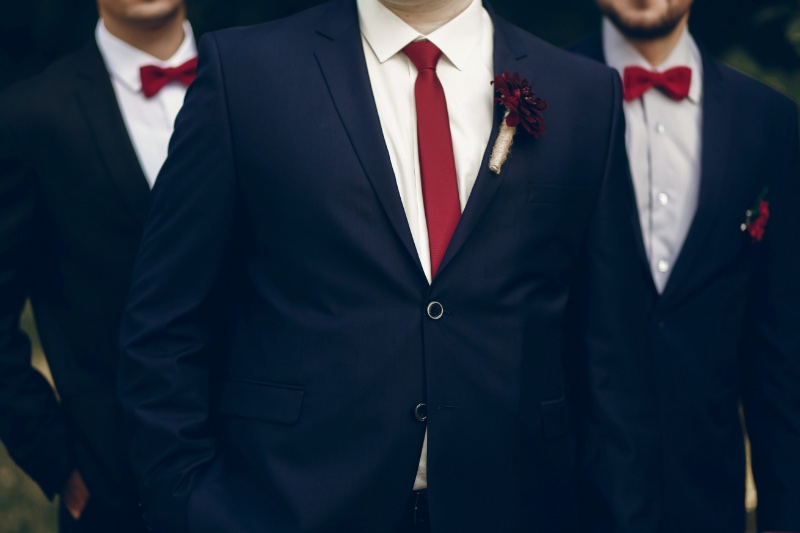
Incorporating elements of the wedding’s color scheme and theme into the groom’s attire adds a layer of sophistication and unity to the event.
Color Accents: Add ties, pocket squares, or boutonnieres to incorporate wedding colors subtly.
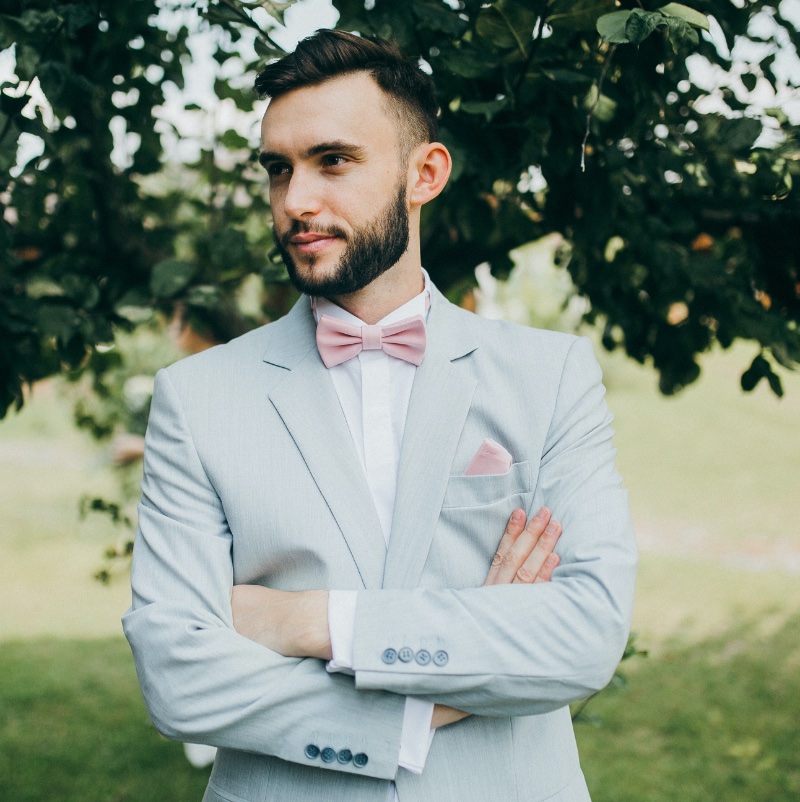
Thematic Elements: If the wedding has a specific theme (e.g., beach, vintage, winter wonderland), include elements in the attire that nod to this theme, such as a nautical tie for a beach wedding or a tweed waistcoat for a vintage affair.
Consistency in Accessories: Ensure accessories like cufflinks, watches, and shoes harmonize with the wedding’s style and color theme.
Crafting a Memorable Groom Look
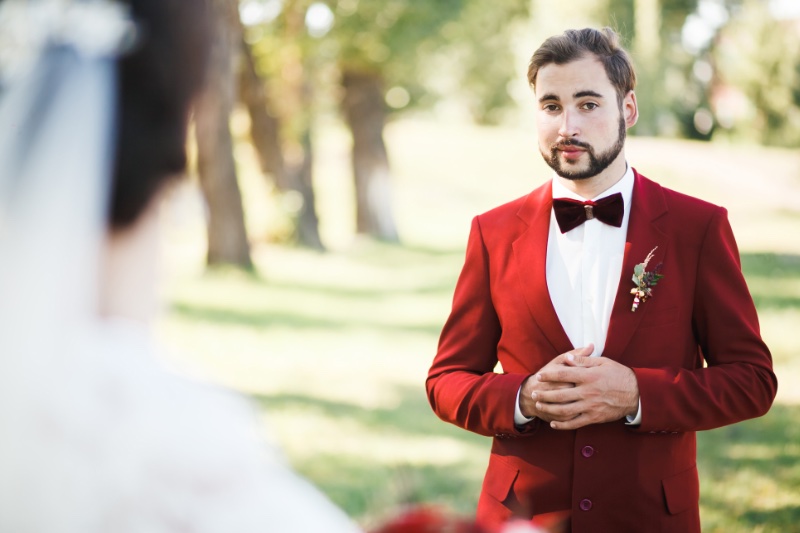
In the grand tapestry of wedding planning, the groom’s attire is a crucial thread that weaves personal style, tradition, and the day’s overarching theme. The journey to selecting the perfect wedding outfit is an opportunity to express individuality, complement your partner, and embody the spirit of the occasion.
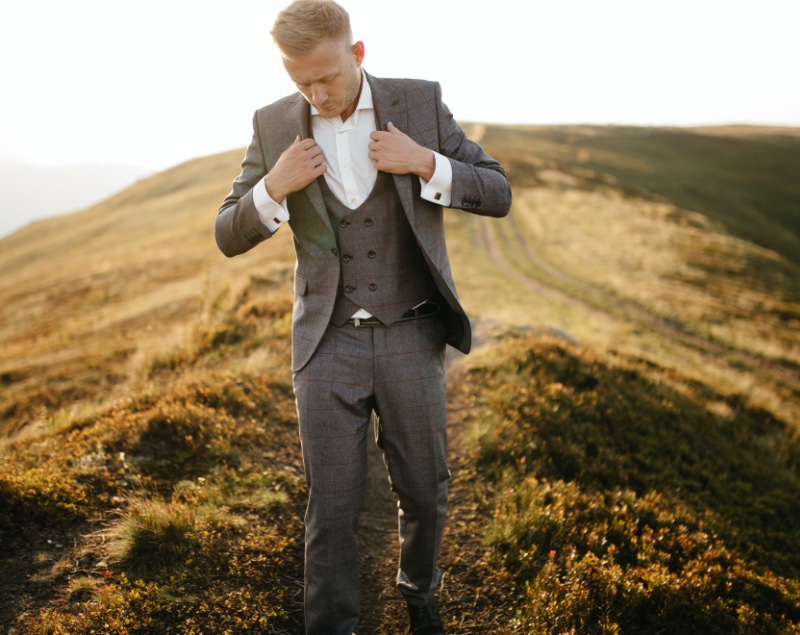
From the classic elegance of a well-tailored suit or tuxedo to the unique charm of thematic attire, each choice tells a story, contributes to the day’s aesthetic, and reflects the groom’s personality. Remember, whether it’s the sharp lines of a tuxedo, the casual elegance of beach attire, or the refined accessories that add a touch of sophistication, every element plays a part in creating a look as unique as the love it celebrates.
